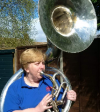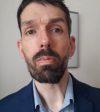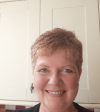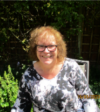Simon H. - Tutor in Beverley
| Subject | Age/level and price |
|---|---|
|
KS3 - £30 - 60min
KS4 - £30 - 60min
KS5 - £30 - 60min
GCSE - £30 - 60min
IB International Baccalaureate - £30 - 60min
A-Level - £30 - 60min
Ages 12 - 14 - £30 - 60min
Ages 15 - 16 - £30 - 60min
Ages 17 - 18 - £30 - 60min
|
| Institution | Town | Speciality | Degree | Class |
|---|---|---|---|---|
| Cardiff University | Cardiff | Microbiology | Bachelor | 2:2 |
| Swansea University | Swansea | PGCE Science with Biology | Master |
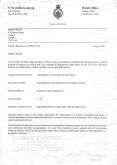
|
I wish to make an application for your advertised position of Tutor and I offer the following in support of my application.
Most of the positions in which I have worked in the last twenty one years overseas have been at a middle or senior management level. I was either head of a subject or head of the science department. I have found the challenge of leading and developing a department, sometimes from scratch, most stimulating both personally and professionally. It has made me realise that a department is really only as good as the people who teach within it. As I was a member of a strong department in Kenya, it has become even more obvious that being a member of a team who can work collaboratively with colleagues leads to a sharing of practice and methods and can only be beneficial. I adopted this philosophy of teamwork years ago and it has benefited both me and colleagues with whom I have been fortunate enough to have worked with.
As a biology and science teacher, I have been fortunate to have worked within many educational systems in various schools, both in the UK and abroad. Before leaving to work abroad in 2000, I taught in schools in the UK delivering the National Curriculum. I taught from KS3 to A-level and was lucky enough to gain valuable experience in teaching students with special needs, both educational needs and physical needs. In Colombia, I was introduced to teaching the International Baccalaureate, being Head of Biology. Due to the diverse nature of international schools I have experience with the EdExcel and Cambridge examination boards at all levels from teaching separate sciences in Kenya, to teaching Foundation Award Coordinated Science in Uganda. I have also taught maths to IGCSE in various schools, both overseas and in the UK. Practical work is often sadly neglected in many countries for a variety of reasons such as funding, availabllity or lack of skill in its performance. Without practical work, science becomes disaffecting to many. The essential skills of observing, recording and the other benefits of practical work are sadly lost. Wherever possible within my plans I incorporate practical work, be it a simple experiment for a group of Year 7 students or a full-blown genetic analysis for a Year 13 IB student - both have equal value.
As my PGCE was from a UK university, I had to be able to teach biology, chemistry and physics to GCSE level and biology to A-level. I now have considerable experience of teaching all three sciences, either as separate sciences or as coordinated sciences, to GCSE and also to IGCSE. Teaching all three sciences has been a challenge, but I have made a special point of improving my subject knowledge at each place in which I have worked and also to have kept abreast of developments in science education in the UK whilst I have been overseas.
When I took up the position of Head of Science at the English School in Kuwait, I had little experience of working with younger students in KS2. The two years I spent there allowed me an insight into the education of younger students and working with the staff there allowed me to take part in an area of education in which I was unfamiliar. The experience proved to be professionally rewarding and gave me a much more rounded view of science education as the teaching methods used were quite different to those with which I had been familiar.
In Cyprus, I took on the position of Head of Secondary as well as teaching the AS and A-level biology and chemistry courses. The department was quite new and consists mainly of newly-qualified teachers and I was personally responsible for mentoring and development. I also gained very valuable experience as the Examinations Officer for the Edexcel Examinations Board.
Very few of the schools in which I have worked have been selective, so most of the classes I taught consisted of mixed-ability students, some of which were not native English speakers. Differentiation of work was therefore essential and I now have schemes of work which differentiate for the full ability range, including non-native speakers of English. This took me some time to accomplish, due to the wide range of abilities of students which I have taught, but it has made my teaching much more effective.
IT in science education has been somewhat of a passion of mine in the last few years. Until arriving in Kenya, I have had little opportunity to use IT in lessons, mostly due to a lack of facilities. I have now been able to fully integrate the use of IT into my science classes. I now utilise video, audio and animated PowerPoint presentations to aid lesson delivery. Many of these presentations I have written myself as I have made a special point of continuously developing my IT skills. Facility with IT is now essential for any teacher and I now consider myself to be proficient with most of the major software applications. The science department in Kenya has now fully adopted multimedia into teaching and I like to think that I played a small part in this success. I was lucky enough to have an interactive whiteboard to use at my previous school.
Outside of the school environment, I am a keen amateur historian and archaeologist. I have found an understanding of history can aid students in understanding the development of ideas, which in turn can aid their understanding of science as a process of testing theories, experimentation, refinement and conclusion. I adopted this technique with older students as a result of teaching the Theory of Knowledge component of the IB curriculum. Younger students may also find this useful through the use of such activities as role-play.
Education is one of the paramount duties of any society. As a professional educator, I see my role as helping students to make sense of the world around them, to inspire curiosity, instill a desire to understand and to create a love of life-long learning. I was very fortunate in having teachers who did just that and I am attempting to pass this on to others through my role as a teacher. I am very much a “team player” and have welcomed the sharing of practice and methods in all of the schools in which I have worked.
Understanding and tolerance of other cultures is vital in these days of ever-shrinking boundaries. My travels have taught me that patience, tolerance and understanding are universal around the world and these experiences in different countries have enriched my life, both personally and professionally.
I would be delighted to expand on any of the points above and thank you for your consideration and in answer to your query, should you consider me.
Simon Hood |
